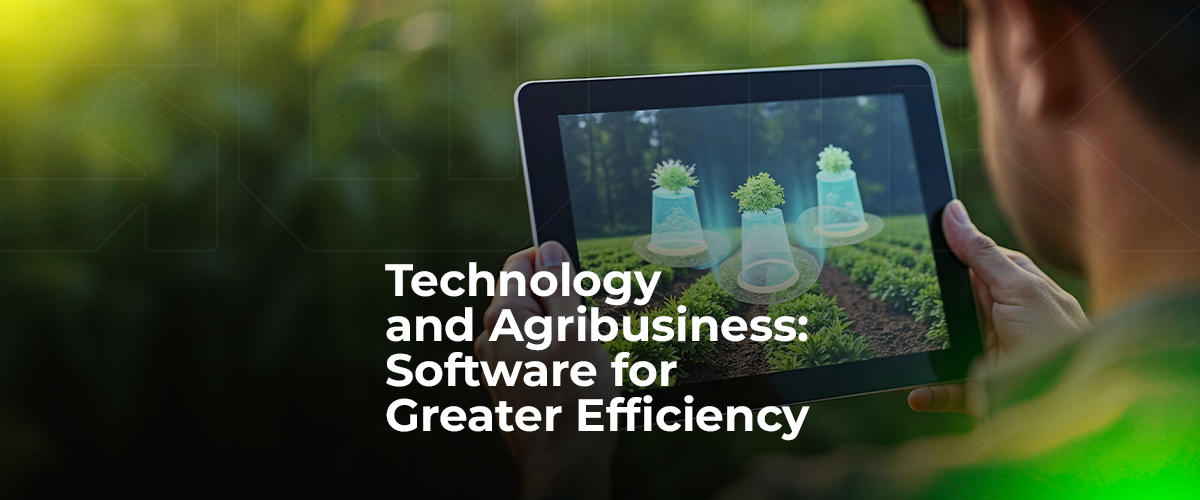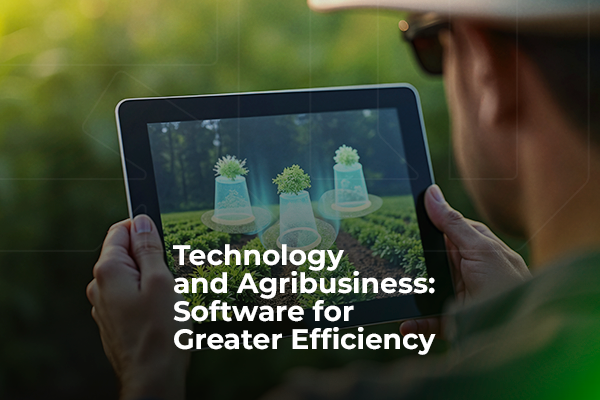

Technology and Agribusiness: Software for Greater Efficiency
Brazilian agribusiness has undergone a technological revolution in recent years. The digitalization of processes, driven by management and automation software, has ensured greater efficiency, productivity, and sustainability in the sector.
In this article, we explore how technology and specialized software can optimize the entire agricultural production chain, bringing strategic advantages to companies in the sector.
The Importance of Technology in Agribusiness
The application of technological solutions in agriculture is no longer a trend but a necessity for maintaining competitiveness. With profit margins pressured by high costs and market fluctuations, producers and companies in the sector need to adopt tools that optimize production, reduce waste, and increase operational predictability.
Key challenges in agribusiness that can be addressed with technology:
✅ Production Management: Monitoring crops, control of inputs, and productivity.
✅ Cost Control: Reduction of waste and optimization of resource usage.
✅ Strategic Decision-Making: Data-driven analysis to improve planning.
✅ Automation and Traceability: Optimized processes and greater transparency in the production chain.
Software to Increase Efficiency in Agribusiness
Technology in agribusiness manifests in many forms, but specialized software is essential for transforming complex operations into more agile and intelligent processes.
1. Agricultural Management Software (ERP Agro)
ERPs specialized for agribusiness integrate data from various operations, providing centralized control of all agricultural and livestock production.
-
Control of inputs, machinery, and inventory
-
Financial and accounting planning
-
Logistics and traceability management
Systems like AgroGestor and Solinftec offer robust solutions for integrated management.
2. Remote Sensing and Precision Agriculture
Precision agriculture software uses georeferenced data, satellite imagery, and IoT sensors to monitor and optimize the use of inputs and soil productivity.
-
Real-time analysis of soil conditions
-
Climate forecasting and recommendation of agricultural practices
-
Reduction of fertilizer and pesticide waste
Platforms like Agrosmart and Climate FieldView provide strategic insights for producers.
3. Fleet Control and Agricultural Logistics Software
Efficient transportation of inputs and agricultural products is a key factor in the sector’s competitiveness. Fleet management and tracking software optimize the logistics flow, ensuring cost reduction and greater predictability.
-
Monitoring of vehicles and agricultural equipment
-
Route control and fuel consumption
-
Reduction of transport losses
Platforms like Fleet Complete and Strider optimize logistics management.
4. Weather Forecasting and Management Software
Weather conditions directly impact agricultural productivity. Advanced big data and AI tools analyze weather patterns and assist in crop and irrigation planning.
-
AI-based climate analysis
-
Soil moisture monitoring and irrigation recommendations
-
Reduction of impacts from droughts and frosts
Systems like AgWeather and Climate Corporation are references in the field.
Benefits of Adopting Software in Agribusiness
-
Increased productivity with data-driven decisions.
-
Reduced operational costs and input waste.
-
Sustainability and traceability in production.
-
Automation and optimization of processes across the entire production chain.
Digital transformation in agribusiness is no longer an option but an essential path to ensure competitiveness and sustainable growth.
We hope this content contributes to the development of your business. 😉

